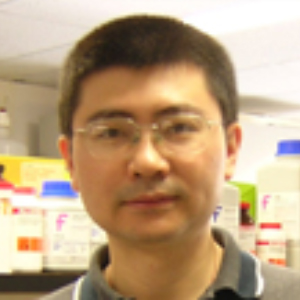A (bio)sensor is an analytical device which integrates a chemical or biological recognition element with a physical transducer to generate a measurable electrochemical, optical, acoustical, mechanical, calorimetrical, or electronic signal proportional to the concentration of the analytes. It has been studied intensively and utilized extensively in various applications ranging from public health and environmental monitoring to homeland security and energy-related area.

The rapid development of micro- and nano-technology in recent years has further fostered research in (bio)sensors. In this presentation, we will discuss recent research progress of various (bio)sensors developed in our group with an emphasis on three specific topics: 1. glucose monitoring using nano-engineered materials for combating diabetes; 2. advanced fluorescent nanomaterials enabled sensitive and selective detection for homeland security; and 3. Functional material enabled counting based immunoassays.
Yu Lei is a Centennial Professor of Chemical and Biomolecular Engineering at the University of Connecticut. Dr. Lei obtained his BS/MS degree from Sichuan University-China in 1993 and 1996, respectively. He earned his Ph.D. degree in 2004 at the University of California-Riverside.
He has published over 180 journal papers with total citation of ~11,000 and H-index of 52 (Scopus). He is the Editor-in-Chief of peer-reviewed journal Sensors and Actuators Reports. He also delivers over 120 presentations nationally/internationally.
Dr. Lei receives numerous awards and honors including elected member of Connecticut Academy of Science & Engineering, elected Fellow of American Institute of Medical and Biological Engineering, First place award of 2017 EPA Advanced Septic System Nitrogen Sensor Challenge, etc.. His (bio)sensor research has been extensively supported by various federal funding agencies such as National Science Foundation, Department of Energy, USGS and Department of Homeland Security.